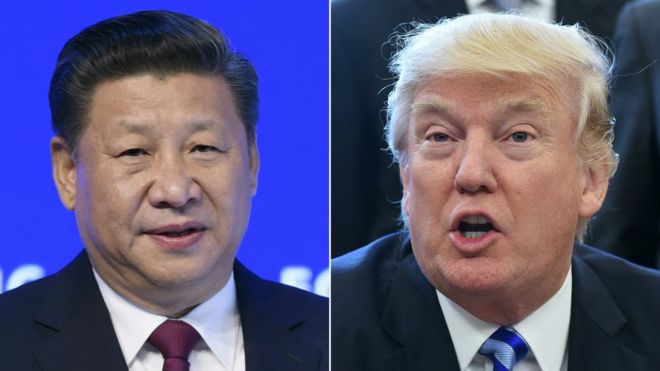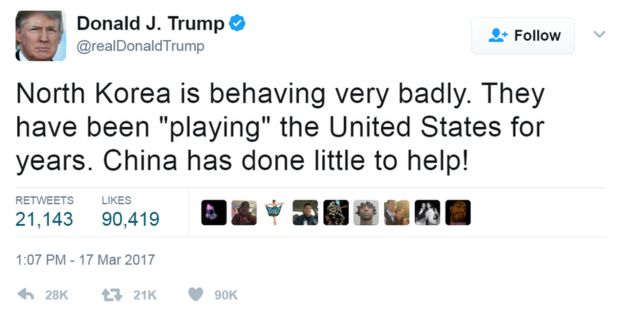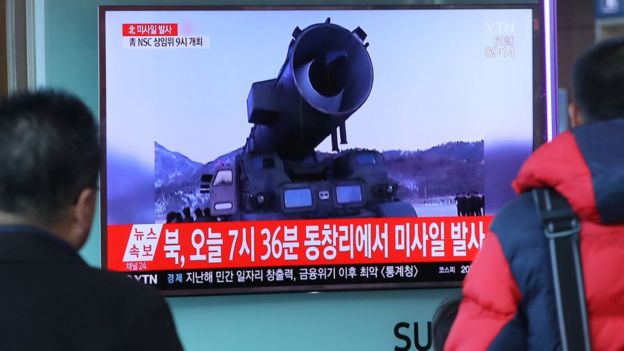 GETTY IMAGES
GETTY IMAGES
Donald Trump has said the United States will "solve" the nuclear threat from North Korea, with or without China's help.
"If China is not going to solve North Korea, we will. That is all I am telling you," he said in an interview with UK paper Financial Times.
Pressed on whether he thought he could succeed alone, he replied: "Totally."
Mr Trump was speaking ahead of a scheduled visit from Chinese President Xi Jinping this week.
"China has great influence over North Korea. And China will either decide to help us with North Korea, or they won't. And if they do that will be very good for China, and if they don't it won't be good for anyone," Mr Trump told the FT.
Asked if he meant "one-on-one" unilateral action, Mr Trump said: "I don't have to say any more. Totally."
He did not give any further details on what action he would take.
Mr Trump's brief comments, published just days before the key meeting with Mr Xi at Mar-a-Lago on Thursday, are the latest in a series of warnings over North Korea's nuclear development.
There are fears that Pyongyang could eventually develop the ability to launch long-range nuclear missiles capable of striking the mainland United States.
 TWITTER/@REALDONALDTRUMP
TWITTER/@REALDONALDTRUMP
During a trip to Asia in March, US Secretary of State Rex Tillerson said pre-emptive military action was an option "on the table".
A month earlier, Defence Secretary James Mattis warned that any use of nuclear weapons would be met with an "overwhelming" response.
- How advanced is North Korea's nuclear programme?
- North Korea's missiles explained
- North Korea's latest missile test - what's changed?
China - which is North Korea's only international ally - has taken action in light of the reclusive nation's latest missile tests.
In February, it banned coal imports from North Korea until the end of 2017, cutting a major source of cash income for Pyongyang.
But Mr Trump is expected to pressure China's president to do much more at their meeting this week - and he has implied that the issue of trade could be used as leverage.
The president told the Financial Times that "trade is the incentive. It is all about trade." But he said he did not plan to discuss tariffs during the meeting.
 AFP
AFP
At the end of March, he signed two executive orders to deal with the US trade deficit, reviewing current rules and foreign trade abuses.
White House officials insisted China was not the focus of his orders - but it is the largest source of the US trade deficit, accounting for about $347bn (£276bn) a year, out of a total of $502bn (£400bn).
And Mr Trump himself tweeted that "the meeting next week with China will be a very difficult one in that we can no longer have massive trade deficits".
Mr Trump has not said how he will negotiate trade with China while also pressuring them to influence Pyongyang.
Analysts say China has maintained its support for Pyongyang as it fears a complete collapse of the North Korean regime could lead to Korean unification, with US soldiers based in a country with a land border with China.
It is thought that China is also concerned at the prospect of millions of North Korean refugees entering its borders.

No comments:
Post a Comment